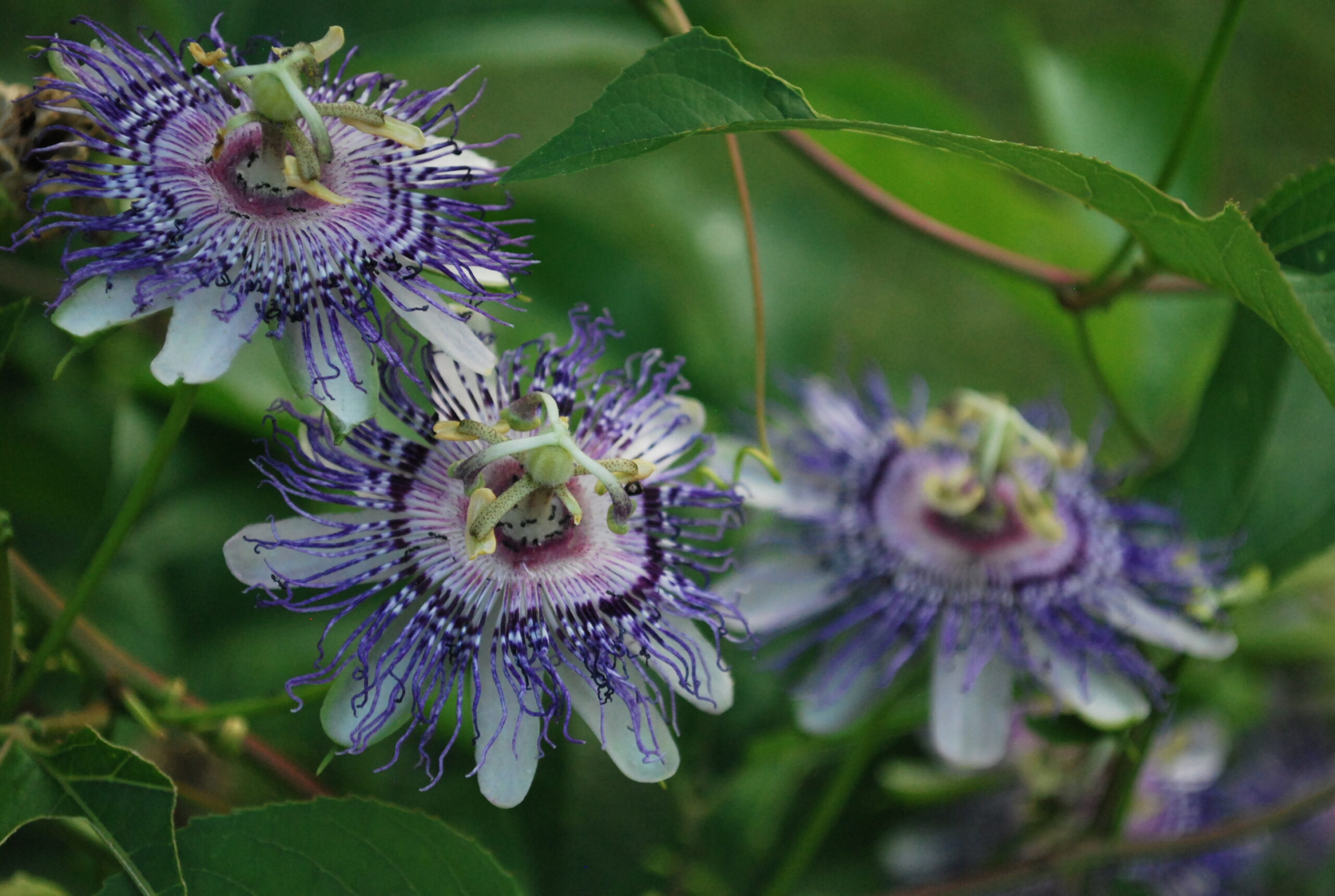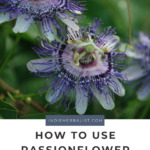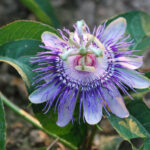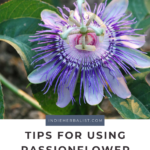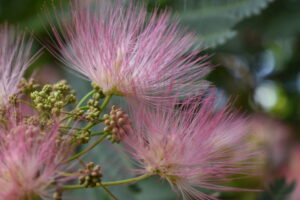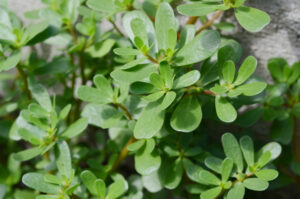Links contained in this post and elsewhere on my website may include affiliate links. When you make a purchase through these links, I earn a commission at no additional cost to you. I only link to products and services that I love - and that I think you will love, too!
As you know, I love sharing about herbal first aid here on Indie Herbalist. Passionflower (Passiflora incarnata) is another herb I know works well for emergency settings. It has a reputation as a “mild” herb for supporting healthy levels of stress. That’s true, but it’s actually much more versatile. Here’s a quick guide to passionflower benefits for herbal first aid.
Passionflower benefits according to history
Passionflower is a native wildflower here in the southeastern United States. Modern herbalists use the leaves the most. The dried flowers look pretty in tea blends, and the fruit is edible, too.
This is one of the first herbs I learned. My grandmother taught me to identify it when I was a child. As soon as I began my herbal studies, it became a staple in my herbal supplies. Here’s why!
The following actions are traditionally associated with passionflower:
- anodyne (especially for neuralgia)
- antispasmodic
- cerebral vaso-relaxant
- hypnotic
- hypotensive
- nervine
- sedative
Passionflower is considered safe for all ages. I also use it regularly for my cats and dogs. Because of this versatility, it gets my vote for being a top prepper’s herb.
How passionflower benefits apply to austere environments
In first aid scenarios, I keep passionflower in mind anytime someone experiences tight, painful muscles or nerve pain. This can make it helpful for scenarios like these:
- giving the body a chance to relax and not reflexively spasm to protect wounds and broken bones
- supporting the uterus and abdomen during painful period cramps
- at night if sleep is disrupted by leg cramps
- for travelers who feel tight and cramped from long hours in the car
- times when someone is feeling restless and anxious and could benefit from nervous system support
- support for elders experiencing nerve-related pain from shingles
- lungs and airways spasming from exposure to dust, air pollution, smoke, or as a reaction to overall tension from stress or illness
- potentially use it in a pinch to support someone with high blood pressure who doesn’t have access to their medication
Personally, I use passionflower regularly as an ingredient in evening teas to support a good night’s sleep. I also rely on this herb:
- when I experience tight, painful neck and shoulders from stress
- nervous system health during stress-related headaches
- helping me think clearly during a chaotic turn of events
More information on passionflower
Passionflower’s benefits are wide-ranging, so it’s a good candidate for a first-aid kit with limited room. Also, this herb stores well. I made a large bottle of extract many years ago. Surprisingly, it was still good after seven years! So I know it’s reliable even after a long time.
Here are a few resources for learning more about this herb if you would like to include it in your own preps.
For guidelines on how much passionflower to use and safety precautions, please read my article An Herbalist’s Guide to Passionflower.
Read Herbalgram’s article about passionflower here.
Learning about herbal first aid
My article setting the stage for herbal first aid covers many basics you’ll need to know to successfully add herbalism to your first aid skills.
Interested in learning more about herbalism for emergency scenarios? I highly recommend courses at The Human Path. Their Herbal Medics University has a wide selection of courses on practical topics. A former Green Beret medic who is now an herbalist runs the school. I’m not an affiliate, but I am a student and enjoy taking online classes whenever possible.
A good foundation in general herbalism is essential for emergency preparedness and first aid. The Herbal Academy has self-paced programs full of information to take you from beginner to advanced! In my opinion, this is the best herbalism school for online learners. Learn more about their courses here (#affiliate).

